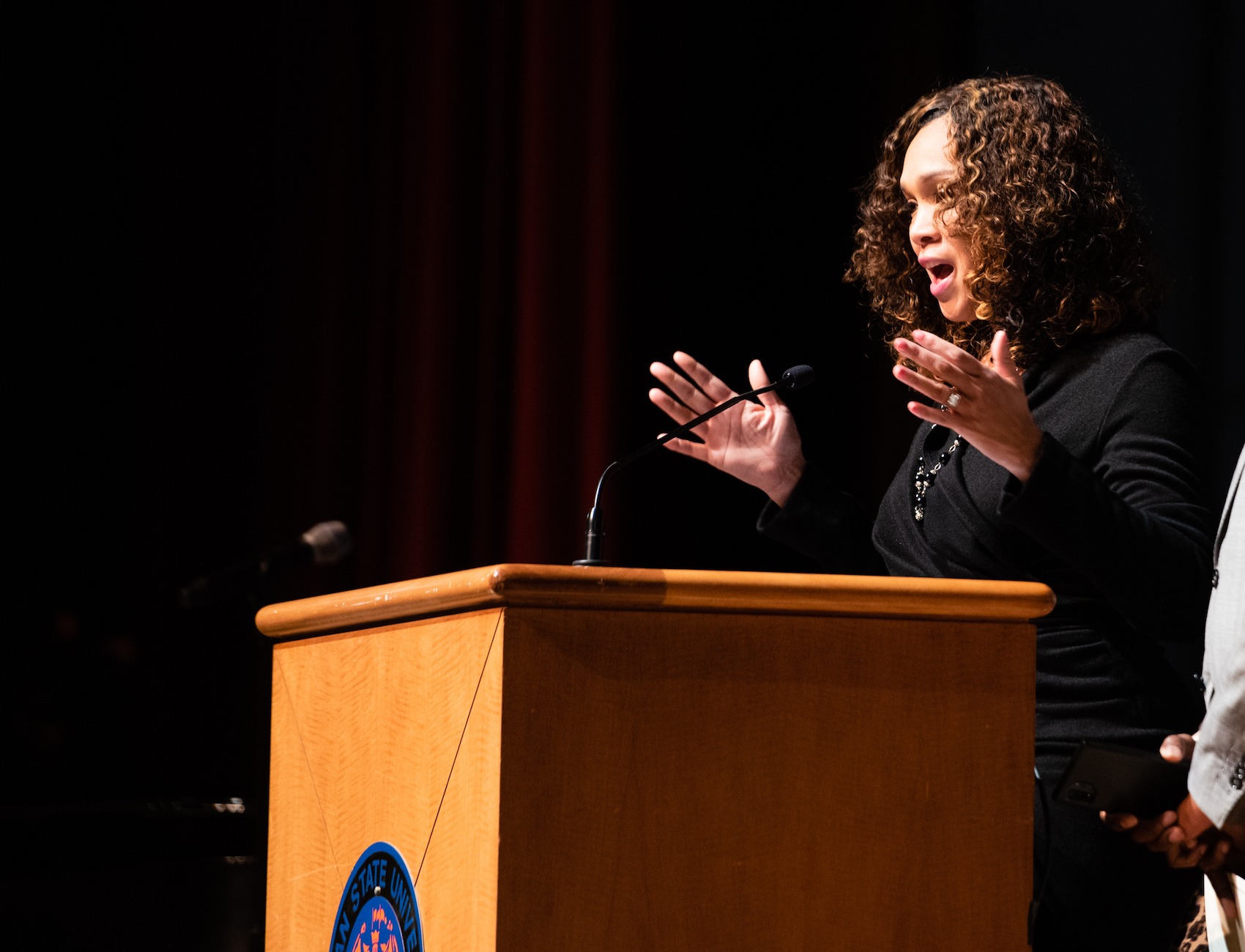Baltimore City State’s Attorney Will Curb Prosecutions of Low-Level Traffic Violations
A new diversion program will allow people charged with driving with a suspended license or without insurance to avoid jail time and fees.

Baltimore City State’s Attorney Marilyn Mosby is taking steps to end the most severe penalties for some of the most minor traffic offenses.
On Monday, her office launched the Slow Traffic Offense Prosecution, or STOP, initiative, which allows people charged with minor traffic violations, like driving with a suspended license, to first come into compliance with the law and have their case dismissed, rather than face hefty fines and potential jail time. The initiative was developed in conjunction with the Fines and Fees Justice Center.
Under the STOP initiative, Mosby’s office will no longer prosecute cases where the person is charged with driving without a license, driving with a suspended license, driving without insurance, and driving with a falsified registration—so long as the person successfully completes a state-approved driver improvement program. The program generally requires anywhere from two to eight hours of class time and costs around $50.
Along with completing the program, people seeking to go through the STOP initiative must come into compliance with the law. For individuals without a license or who drove on a suspended license, this means legally obtaining a driver’s license, if permitted by law. For people charged with offenses like driving without a registration or insurance, they must either legally register the vehicle or obtain insurance.
People charged with driving on a suspended license because of a prior DUI conviction or because their license was suspended by the state Medical Advisory Board do not qualify for the STOP initiative. Cases involving a crash or victims also do not qualify for the program unless approved by the victim.
“We know that thousands of people every year will wind up with a driver’s license suspended, revoked, or canceled, and what they need is assistance to fix the problem and to address whatever the underlying cause might have been, rather than fines and jail time,” Miriam Krinsky, executive director of Fair and Just Prosecution, told The Appeal. “Simply criminalizing that kind of conduct too often is going to force people to make a very difficult decision between driving themselves to work or their children to doctors appointments, or facing the threat of criminal prosecution.”
According to a memo announcing the program, Mosby’s office prosecuted more than 8,300 cases of driving without a license and more than 12,400 cases of driving on a suspended license in 2019. Driving without a license and driving with a falsified registration currently carries a maximum penalty of 60 days in jail and a $500 fine. Driving on a suspended license and driving while uninsured can lead to up to a year in prison and a $1,000 fine.
In May, Maryland Governor Larry Hogan signed a law that ends the practice of suspending driver’s licenses because of unpaid traffic fines and fees. The move was heralded by advocates as a step towards ending the cycle of poverty created by law enforcement and the courts.
Police disproportionately pull over and search Black people for low-level traffic offenses. A 2020 New York University study of millions of traffic stops nationwide found that Black drivers were 20 percent more likely than white drivers to be pulled over, and 1.5 to 2 times more likely to be searched.
The STOP initiative announcement comes just days after Mosby said she would reduce prosecutions for sex work and low-level drug crimes. She told the Washington Post that the announcement was not related to an ongoing federal investigation into her campaign finances.
Other top prosecutors across the country are ending police enforcement and criminal prosecution of low-level traffic infractions. Boulder County, Colorado District Attorney Michael Dougherty introduced a similar diversion program that allows drivers charged with low-level traffic offenses, like driving without a license or driving without insurance, to have their cases dismissed if they can show they have obtained a valid license or insurance. Hillsborough County, Florida State’s Attorney Andrew Warren implemented a program in 2017 where people charged with driving on a suspended license can have their cases dismissed by paying any back fines and fees. Warren said in November that his office has dismissed more than 7,000 cases under this program.
Mosby’s announcement is part of a larger movement among state and local elected officials to reduce the harms caused by police enforcement of traffic offenses. Earlier this year, Florida state lawmaker Omari Hardy introduced a bill that would take some traffic enforcement from armed police officers by hiring trained traffic monitors. In February, the Berkeley, California City Council voted to approve a sweeping set of reforms that prevent police officers from stopping motorists for minor traffic violations. Similar reforms were instituted in Oakland, California in 2016 and the number of traffic stops were cut more than in half, while overall crime also fell.
The STOP initiative “is a step in the right direction,” Krinsky said.
